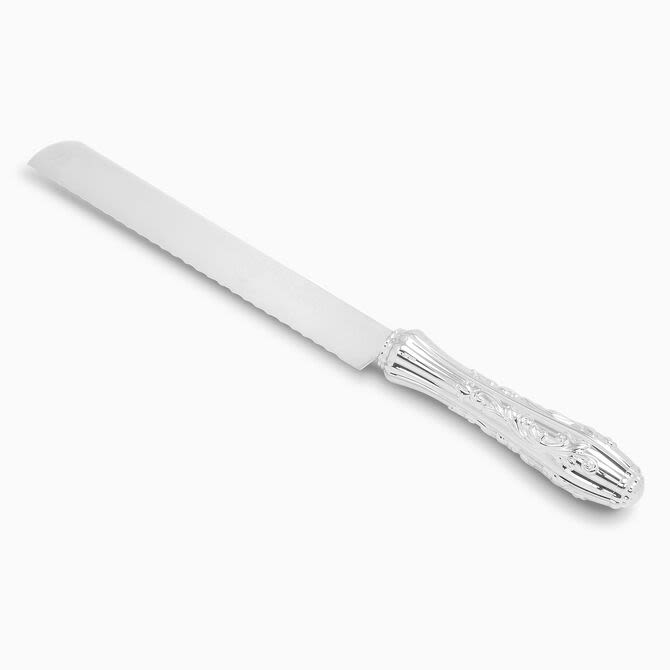
Jump into the Sea of Faith
When we come to the shore of this sea how far are we prepared to go? Are we only ready to ‘get our feet wet,’ or are we prepared to jump into the...

When we come to the shore of this sea how far are we prepared to go? Are we only ready to ‘get our feet wet,’ or are we prepared to jump into the sea of faith without thinking too much?
When explaining a concept that’s larger than life, we tend to use comparisons. For example, we often use the sea or ocean for this purpose: an ocean of love, a sea of wisdom, a sea of laughter, a sea of tears.
We’re also going to discuss a sea – the sea of emuna – the sea of faith!
When we come to the shore of this sea, how far are we prepared to go? Are we only ready to ‘get our feet wet,’ or are we prepared to jump?
No one ever drowned in the sea of emuna. The opposite is true. We find that Nachshon ben Aminadav jumped into the Red Sea up to his neck…and then the sea split! The Jewish people had to make a small leap into the sea until the water threatened to overwhelm them, and then, when the water reached his nostrils, God split the sea!
The Egyptian army was poised on one side, dangerous and poisonous animals were on the other, and an impassable terrain on the third; the Children of Israel were surrounded. Which way could they turn? Nothing remained but the Red Sea. They had no choice but to jump into the water. They had to believe this was where their salvation lay – precisely in the one direction for which no reasonable explanation could be given.
Where, then, does emuna begin?
Where logic and reason can’t provide an answer – that is the beginning of emuna. Emuna is beyond logical analysis. The Children of Israel didn’t see any possible solution, so they demanded from Moshe (Moses) that he took them back to Egypt. It’s better to surrender and be slaves than to die in the desert. But the Divine Intellect, the Intellect of emuna, commanded them to enter the sea! According to simple logic, it was impossible. It meant an entire nation of man, women and children would drown.
We must give emuna the power to direct our lives. This means that we accept God over ourselves, Who rules over the entire world and directs the details of our lives; Who can split the sea even when everything appears hopeless.
The Talmud tells a story about Rabbi Akiva, who was a giant of emuna. He was once traveling and arrived at a certain city. When he asked the people of the city for a place to spend the night, they refused. So he ended up spending the night in the forest. “Everything God does is for the best,” he said.
He had a lantern to provide him with light, a rooster to wake him in the morning, and a donkey for traveling. While he was in the forest, the wind blew out the lantern and wild animals devoured the rooster and the donkey. With each "tragedy" Rabbi Akiva said, “Everything God does is for the best.”
In the middle of the night, a band of robbers attacked the town and kidnapped all the people there, to be sold into slavery. Rabbi Akiva said: “It’s good that I said, ‘Everything God does is for the best!’ If the townsmen had welcomed me, I would have shared their fate. If the lantern had remained lit, or if the rooster had crowed or the donkey brayed, they would have known that I was sleeping in the forest and they would have taken me captive too.”
Rabbi Akiva was an awesome Torah scholar, one of the holy teachers of the Mishna, a teacher and public speaker, and yet he constantly desired to learn emuna. For twenty years he studied under Nachum Ish Gamzu, who would say about anything that happened, "Gamzu l’tova," “This is also for the best.” Rabbi Akiva learned from him that whenever a bad thing happens, it is also for the best. Rabbi Akiva, however, took this one step further and believed that “everything Hashem does is for the best.” Not only “this is also for the best,” but everything is for the best!
Rabbi Akiva believed in an intellectual, analytical fashion, but he allowed this belief, this emuna, to have a practical influence on the way he led his life and therefore it determined his reaction to the events of that night. His humility brought him to accept the reality of God, Who directs the entire universe and the individual’s life with exact, precise Divine Providence. He lived that belief on both an intellectual and practical level.
When we state that Rabbi Akiva’s emuna affected every aspect of his life, there’s no implication here that he left everything up to God, as if God would do everything and Rabbi Akiva would just sit back and relax! Just as we find that Nachshon ben Aminadav jumped into the sea, which was the necessary action at that particular moment, Rabbi Akiva also carried out the necessary actions to fulfill his plans. He went on his trip with everything he needed to successfully arrive at his destination – a lantern to provide him with light, a rooster to wake him up in the morning and a donkey to transport him. He wasn’t relying on miracles. When things didn’t go according to plan, however, he didn’t get upset or angry. He accepted the setbacks with the clear recognition that the One who directs the world at large and his life in particular had changed the program for his good, and so he said: “Everything Rachmana (God) does is for the best.”
Rachmana
Rabbi Akiva used the expression ‘Rachmana’ – the merciful One – when he explained his emuna that whatever happened or will happen is designed for him from Above, and carried out in complete mercy. Rabbi Akiva was sure of this even before he saw any confirmation that the seeming tragedies he experienced that night were for his benefit. In the end he was privileged to see how the Divine hand had orchestrated events to save him; could there be any mercy greater than this?
Life has different faces. At times, life seems to smile at us, and we perceive this as times of kindness and mercy. Sometimes we see a cold face – thick, dark clouds hover over us. Nothing seems to go the way we want, and we ask, “Why is this happening to me?” Even when things aren’t going well, and we are beset with suffering and pain, we must remember that our "suffering" is sent to us by God to help us and save us, just like the seemingly "good things." We are not always privileged to see the entire picture.
God is absolutely good, and in His great love for us He wants to bestow His goodness upon us. Sometimes, he brings us closer to this good with pleasant, smiling days, and sometimes, the days are full of dark clouds. In those dark days, it is our task to search for and discover the good. Emuna that everything is for our benefit helps us to cope with those cloudy days.
Our Creator is like a merciful father; sometimes he caresses us with His soft, loving hand, and sometimes, when there’s no choice, he gives us a "potch." God’s attributes of Mercy and Justice join together in bestowing His love on His created beings and bring them close to Him.
This makes sense when we can define the problems we are facing as being reasonable and bearable. In the case of Rabbi Akiva, it was certainly unpleasant to be left all alone in the forest, and very frightening when wild animals attacked his rooster and donkey. But the next morning he saw that it was all, really, for the best.
Sometimes, however, we suffer ongoing difficulties that never seem to let up – such as problems with livelihood, family, the security situation, and the like. Then it is much harder to feel that “all’s well that ends well,” because, well, we never see the end!
How can we take our intellectual understanding that everything is for the good and bring it to an emotional level? We know that whatever God does is for the best, but how can we feel it?
When it comes to major trials and tribulations, it’s difficult to bring our intellectual understanding to an emotional level. So instead of starting with the "tough stuff" let’s begin by reframing the small hassles and frustrations of everyday life through the lens of emuna.
Here’s a common example: you’re stuck in an enormous traffic jam on your way to work. What will the boss say, especially today, when you have a huge deadline to meet? The cars aren’t moving, and you realize that it will be impossible not to be late! You become more nervous and angry with each passing second. "What’ll be? Why today, when it’s so important that I arrive on time? After all, I have an important meeting to prepare for."
This type of thinking won’t make the traffic jam disappear! But if we remember that everything’s for the best, and that God has His reasons for it being this way, we will benefit. Through bringing emuna into the petty problems, we can strengthen ourselves when it comes to larger issues.
A wealthy man once came to Rabbi Dov Ber, the Maggid of Mezritch, and asked him how he was able to be grateful for the bad things in his life, as our Sages said, “One must bless, i.e. thank God, for the bad in the same way we thank Him for the good.” The Maggid answered: “I have a student who can help you. Go to Anipoli and look for Reb Zusha.” The wealthy man traveled to Anipoli and asked for Reb Zusha. He was directed to a dilapidated old shack where the poverty screamed out of every corner. When he explained why he had come, Reb Zusha asked in surprise, “Why would the Maggid send you to me? I’ve never had a bad day in my life."
To see the world through the eyes of Reb Zusha does not involve an enormous spiritual change. Instead of feeling that we must fulfill (because I deserve it) our plans and busy schedules (without taking into account there might be changes, which are for our benefit, of course, although we may not recognize it), we should nullify our pride and remember that whatever God wants is for our ultimate benefit.
As long as we feel that we’re in control and that we’re running things – we’ll be painfully disappointed when things don’t come out the way we planned. But the moment we remember that God is there, planning and directing things, we’ll be able to accept the changes in our plans and (hopefully) discover the benefits.
Rebbe Nachman says that if a man holds a tiny coin over his eyes, he can block his view of an entire mountain. As long as we’re stuck in the mud of physicality, pursuing temporal pleasures, which are like the little coin, we’ll be blinded to the fact that “everything God does is for the best.” Physical desires can prevent us from seeing the eternal, revealed good, and stop us from recognizing the hidden good in everything that happens.
The circuit of desires, lusts, and personal cravings prevents us from having emuna, and the source of this circuit is the inner ego that arrogantly declares: “Me!”
To live in the sea of emuna, or at least to try to live in that sea, means to see life from an entirely different perspective. Once we realize that God is in control, then life becomes more relaxed. Something happened? There’s obviously a good reason for it, and it’s certainly for my benefit. Once "I" is no longer in center stage, we can make room for the One Who spoke and brought all of existence into being, the true Director of the show.
It takes time to learn to live in the sea of emuna. However, “it is not in the Heavens or across the sea,” and if we sincerely aspire, we’ll succeed. We can always try, even if we will have to try time and time again. As God promised His people, “Open for Me an opening of teshuva the size of an needle’s eye, and I will open for you an opening that wagons can enter. I’ll take care of the rest.”












Tell us what you think!
Thank you for your comment!
It will be published after approval by the Editor.